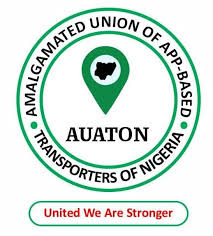The rise of e-hailing services has revolutionized transportation in many parts of the world, offering convenient and often affordable alternatives to traditional taxis. However, this technological disruption has also brought forth a new set of challenges, particularly concerning the working conditions and rights of e-hailing drivers. In Nigeria, drivers operating under various app-based platforms like Uber, Bolt, and InDrive, have united under the banner of the Amalgamated Union of App-based Transporters of Nigeria (AUATON) to advocate for improved treatment and a more equitable share of the revenue generated through their services. Their primary demand is for the establishment of a federal regulatory framework to govern the e-hailing industry, ensuring a fairer balance of power between drivers and the often multinational app companies.
AUATON argues that the current system heavily favors the app companies, which they accuse of exploiting drivers’ labor while repatriating profits to their home countries. Drivers contribute significantly to the e-hailing ecosystem, providing the vehicles, fuel, maintenance, and enduring the wear and tear of daily operations. Yet, they have little control over pricing or commission structures, which are dictated by the app companies. This imbalance leaves drivers vulnerable to fluctuating earnings and susceptible to unfair practices, such as arbitrary deductions and changes in commission rates without adequate consultation. AUATON leaders emphasize that their repeated attempts to negotiate with the app companies have yielded minimal results, reinforcing the need for government intervention to level the playing field.
The call for a federal regulatory framework is rooted in the belief that a centralized approach is crucial to address the inconsistencies and inadequacies of existing state-level regulations. AUATON Vice President, Kolawole Aina, highlights that although many states have implemented their own regulations, these often fall short of protecting drivers’ interests. He argues that a national framework will create a standardized set of rules applicable across the country, eliminating the patchwork of regulations that currently exists. This unified approach, according to AUATON, is essential for ensuring consistency and preventing app companies from exploiting regulatory loopholes to the detriment of drivers.
A national framework, as envisioned by AUATON, would involve all stakeholders, including the government, app companies, drivers, and even passengers. This inclusive approach aims to create a more transparent and accountable system where the interests of all parties are considered. AUATON emphasizes the need for regulations that address issues such as fare structures, commission rates, driver safety, data privacy, and dispute resolution mechanisms. This holistic approach would not only safeguard drivers’ rights but also enhance the overall quality and sustainability of the e-hailing industry.
Furthermore, a federal framework could mitigate the burden of multiple taxation currently faced by drivers. With varying regulations across states, drivers often find themselves subjected to multiple layers of taxes and fees, further diminishing their earnings. A standardized national framework could streamline the tax system, reducing the administrative burden on drivers and ensuring a more equitable distribution of tax revenue. This simplification would not only benefit drivers but also contribute to a more transparent and efficient tax collection system.
The drivers’ demands are not merely about increasing their earnings but also about securing their livelihoods and ensuring the long-term viability of the e-hailing industry. They argue that a stable and fair regulatory environment is essential for attracting and retaining drivers, ultimately benefiting both the industry and the consumers who rely on these services. AUATON’s push for a national framework reflects a growing global trend of gig workers organizing to demand better working conditions and a greater voice in the digital economy. Their advocacy underscores the need for regulatory frameworks that adapt to the evolving nature of work and protect the rights of those contributing to this rapidly expanding sector. The success of their efforts could serve as a model for other gig economy workers seeking fair treatment and recognition within the rapidly changing landscape of modern labor.














